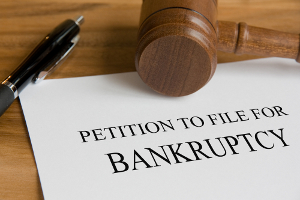 In Chapter 13 bankruptcy cases debtors file a plan to reorganize their debts. These plans are three to five years long and address all of the claims against the debtor. Simply filing a plan doesn’t change the rights of the creditors. The plan has to go through a process called confirmation. Confirmation is the hearing at which the debtor asks the court to approve the plan by signing a court order. Before the confirmation hearing creditors have an opportunity to file objections to confirmation of the plan. These objections are usually either worked out by way of an agreement between the parties or the judge decides the issue. Once all objections to confirmation are resolved, the plan is confirmed assuming the debtor has met all other requirements.
In Chapter 13 bankruptcy cases debtors file a plan to reorganize their debts. These plans are three to five years long and address all of the claims against the debtor. Simply filing a plan doesn’t change the rights of the creditors. The plan has to go through a process called confirmation. Confirmation is the hearing at which the debtor asks the court to approve the plan by signing a court order. Before the confirmation hearing creditors have an opportunity to file objections to confirmation of the plan. These objections are usually either worked out by way of an agreement between the parties or the judge decides the issue. Once all objections to confirmation are resolved, the plan is confirmed assuming the debtor has met all other requirements.
Sometimes after filing bankruptcy a debtor’s financial situation will change. Perhaps there income dropped due to a new job or loss of overtime. Debtors sometimes have new expenses associated with medical care, a new child, or some other expense that they didn’t have at the time their original plan was confirmed. The bottom line is that bankruptcy plans last three to five years and during that time income and budgets can change. When there is a change in the debtor’s circumstances they sometimes can modify their Chapter 13 plan. These plans pay unsecured creditors based upon the debtor’s disposable income. If the debtor’s disposable income drops then the plan can be modified to reduce the plan payment.
The plan modification process is similar to the process involved in getting a plan confirmed. A modified plan is filed and set for hearing. Creditors and the trustee have an opportunity to review the plan and object to its terms. These objections are either resolved by agreement or the judge decides the issue. Once all objections are resolved the modified plan is approved by the court.